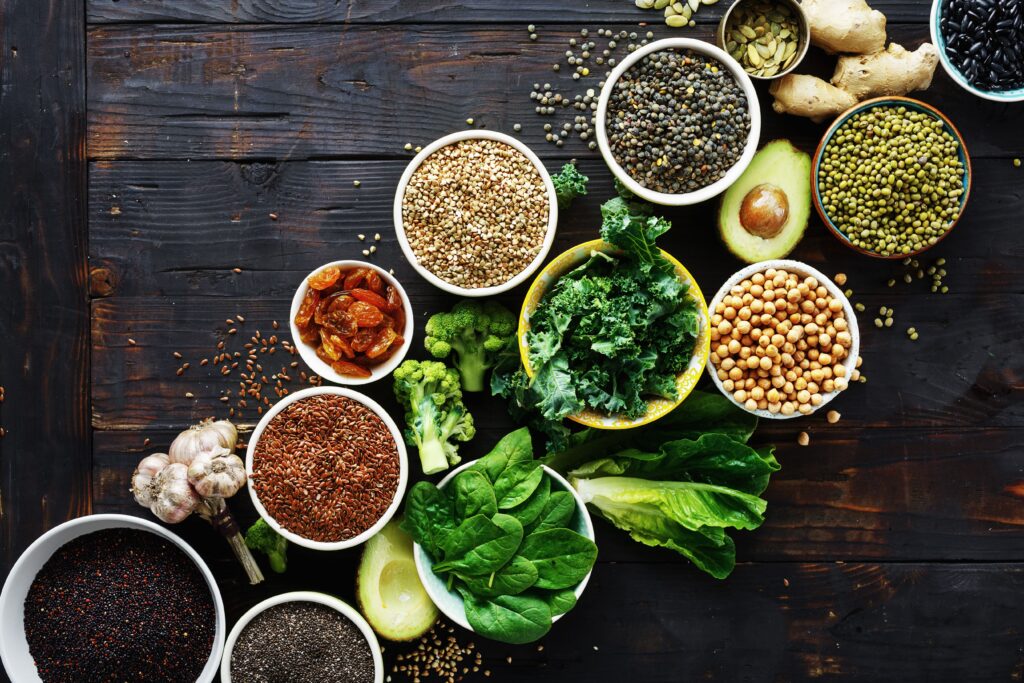Have you heard of the saying ‘you are what you eat’? The food and drinks which you consume are important for many reasons including the nutrients they provide your body as well as how they shape the composition of your gut microbiome.
The importance of a healthy gut and promoting a healthy gut microbiome is essential for promoting your optimal health. There are many parts of your lifestyle that impact the health of your gut microbiome. One of these factors is your diet.
The evidence supporting a plant-based diet from whole foods like wholegrains, nuts, seeds, fruits, vegetables, legumes, and beans, to provide the type of fibre called prebiotic fibre which feeds the health promoting microbes and encourages a diversity of microbes is well known. What is less well known is the microbes present on the food you eat may also be impacting your gut microbiome.
You may be aware of the microbes present in foods and drinks like yoghurt, cheese, kombucha and pickled vegetables. You may be less aware that microbes exist on many other foods from non-fermented and fermented meats, fish, to fruits, vegetables, fermented seeds. Researchers have recently created a catalogue of microbes present in two thousand five hundred and thirty-three foods. Hundreds of the species discovered were previously undetected species.
These microbes are not all what you may automatically consider microbes linked to illness and food poisoning. The scientists discovered that only a small number of microbes were harmful to your health such as Staphylococcus aureus and E. coli. Many microbes discovered provided either a positive or neutral effect on your health. Some of the microbes discovered were not harmful to your health but altered the taste of a food product and this may be why if an apple is past its prime may taste bitter and undesirable to eat.
This piece of research is exciting as it can provide insight to the types of microbes present on a food when the quality of a food changes as well as the level of preservation. So, the types of microbes present when you are enjoying your bowl of overnight oats with yoghurt and fresh fruit in the morning would be different to when the same breakfast is past its prime.
This research can be useful in food industry to help improve food preservation techniques, reduce spoilage and potentially enhance detection of pathogens in food. Microbes detected also change depending on where the food was grown or made. This means assessment of microbes’ present could identify the origins of that food. This could be used to identify locations where the quality of foods could be improved.
You may be asking what impact these microbes have on your own gut microbiome. While some remain in your gut for just a few weeks this is not the case for all you eat. The number of microbes which remain stable in your gut for an infant can be as large as fifty six percent and for an adult around three percent. These percentages both have implications for impacting the health of your body.
Take home message: Microbes have taken a new level of importance and impact to the health of your body. You are more than what you eat but what microbes are present on the food and drinks you consume too.

Reference:
- Carlino, Niccolò et al. “Unexplored microbial diversity from 2,500 food metagenomes and links with the human microbiome.” Cell, S0092-8674(24)00833-X. 16 Aug. 2024, doi:10.1016/j.cell.2024.07.039








